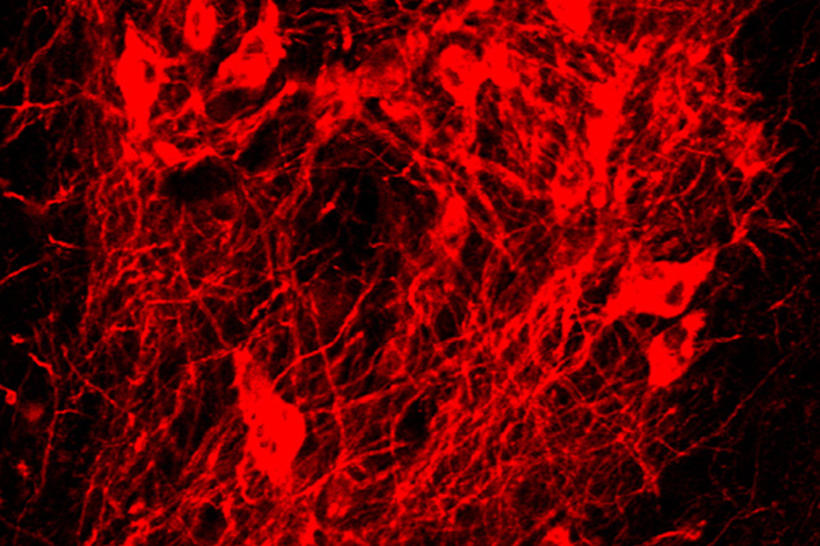Possible progress against Parkinson's
The team reported that dopamine-producing neurons (pictured) derived from the skin cells of primates survived for more than two years after implantation into one of the animals. Isacson noted that the animal was “able to move as fast around its home cage” as an one without Parkinson’s, and had normal agility, though individual motions were still slowed by the disease. Photo/ Harvard Gazette
Icelandic neurosurgeon Arnar Ástráðsson has transplanted patient-specific induced pluripotent stem cell (iPSC)-derived neurons into the brains of three cynomolgous monkeys. The monkeys had previously all received MPTP which produces the effects of Parkinson's disease, shaking, stiffness and slow movement. One monkey regained former activity after the operation.
Parkinson’s, which may affect as many as 1 million Americans, is caused by a depletion of dopamine-producing neurons in the brain. The disease causes a range of symptoms, from mild tremors to dementia and death, and can include slowed movements, muscle rigidity, tremors, changes in speech, loss of autonomic movement, and related issues. Current treatments include medications, electrical implants in the brain, and, in a limited number of cases, fetal neuron transplants.
The research was conducted by the Harvard Stem Cell Institute.
According to Ástráðsson, if treatment of the monkeys goes well, it could be tried out on humans in three years or so.








